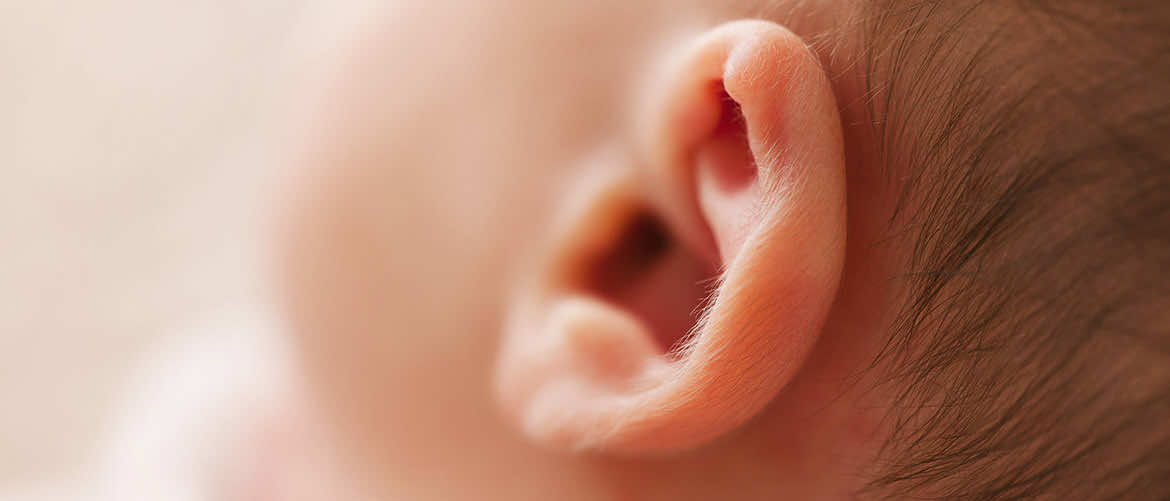Ear infection
The ear is a hearing and balance organ and is made up of three parts: outer ear, middle ear and inner ear. Ear infections are common in both young children and adults. They can occur in both the inner, middle and outer ear.
What is a middle ear infection (otitis media)?
- It usually affects children
- Can be caused by viruses like colds and flu
- It affects the middle part of the ear – this is the tube that run behind the eardrum to the back of the nose, known as the Eustachian tube
What is an outer ear infection (otitis externa)?
- It typically affects adults aged 45 to 75
- Irritations to the ear canal, such as eczema, water or wearing ear plugs
- It affects the ear canal – this is the tube between the outer ear and the eardrum
Ear infection symptoms
- Pain in either inner ear or outer ear
- Swollen, red external ear and ear canal
- Itchy ears
- Discharge
- High temperature of 38C or above
- Hearing loss
- Blocked ear or a feeling of fullness
- Feeling sick
- Lack of energy
Ear infection treatments
Most ear infections clear up within three days, although sometimes symptoms can last up to a week.
You can also apply a warm flannel on your ear or take paracetamol or ibuprofen for pain relief.
If your ear infection persists and lasts longer than three days, book an appointment with a GP.
You may be prescribed ear drops or antibiotics to help clear the infection. If you have a pus-filled spot or boil, this can be drained by a simple procedure where the affected area is pierced with a needle and drained.
How to prevent an outer ear infection
- Dry your ears with a clean, dry towel or hair dryer on the lowest setting after a bath or shower
- Avoid using cotton buds or other utensils to clean your ear canal
- If you use ear plugs regularly, clean them with rubbing alcohol to keep them sterile
- Use ear plugs when you go swimming
- Tip any water from your ears after swimming or having a bath or shower
- Use acidic drops – which you can get over the counter at your local pharmacy- before or after swimming
- Avoid washing your ears with soap, this affects the natural acidity of your ear canal
- Don’t swim in dirty water
Tinnitus
Tinnitus is a condition where you can hear a constant ringing in your ear.
Tinnitus can also sound like:
- Clicking
- Hissing
- Roaring
- Buzzing
- Whooshing
- Humming
- Unclear voice or music, although this rare
What causes Tinnitus?
Tinnitus is not a disease but a symptom that can result from a number or underlying causes:
- Ear infections
- Ear wax build-up
- Working in a noisy environment
- Cardiovascular related diseases
- Brain tumours
- Side effects from some medications such as antibiotics
- Previous head injury
- Emotional stress
- In rare cases tinnitus can affect patients suffering from depression
Treatments for Tinnitus
- Sound therapy
- Hearing loss correction
- Counselling, CBT
- Exercising
- Relaxation
Hearing Loss
Losing your hearing can be a scary experience. You can suffer from a temporary loss of hearing or in worse cases, it can be permanent. You can lose your hearing suddenly without having any obvious symptoms, although this is rare.
Signs and symptoms of hearing loss:
It can be difficult to tell whether you’re losing your hearing or not. The signs can be different person to person. For example, if you lose your hearing in one ear, the signs of this will be different to a young child experiencing a loss of hearing.
The symptoms that you may come across are earache, tinnitus or vertigo.
Common signs losing your hearing
- Difficulty in clearly hearing people, misunderstanding what they say especially in noisy places
- Asking people to repeat themselves
- Listening to music or television on an uncomfortably loud volume
- Difficulty hearing on the phone
- Finding it hard to keep up with a conversation
- Feeling tired or stressed from having to concentrate on listening
Causes of hearing loss
- Sudden hearing loss in one ear could be because of earwax build-up, ear infection, burst eardrum or in some cases Ménière’s disease
- Sudden hearing loss in both ears may be due damage from loud noises or even some medication
- Gradual hearing loss in one ear may be due to something inside the ear, like fluid, build-up of skin cells or abnormal bone growth
- Gradual hearing loss in both ears is usually caused by ageing or exposure to loud noises for a prolonged time
Treatments for hearing loss
- Ear irrigation
- Earwax suction
- Hearing aids
- Cochlear implants
Preventing hearing loss:
- Keep the volume on your television, radio and phone to a reasonable level
- Use vented ear plugs
How can we help you?
As a private doctor’s clinic based in Central London we can provide you with same day GP appointments.
We can carry out examinations, give advice on treatments, prescribe you medication or refer you to a specialist.
Related articles
- Middle ear infections – the symptoms and causes
- Listen up: All about ear infections
- Chronic ear infection
Article written by: Agne Zemaite
Published: December 2018
Review date: December 2021

